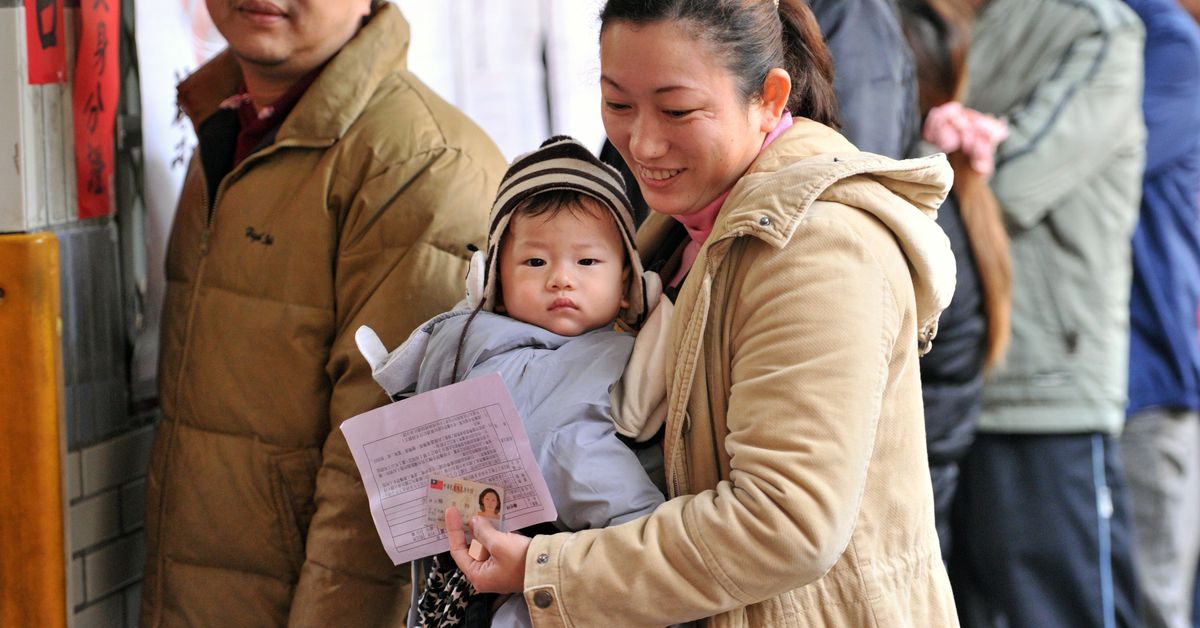These countries tried everything from cash to patriotic calls to duty to reverse drastically declining birth rates. It didn’t work.
…
If history is any guide, none of this will work: No matter what governments do to convince them to procreate, people around the world are having fewer and fewer kids.
In the US, the birth rate has been falling since the Great Recession, dropping almost 23 percent between 2007 and 2022. Today, the average American woman has about 1.6 children, down from three in 1950, and significantly below the “replacement rate” of 2.1 children needed to sustain a stable population. In Italy, 12 people now die for every seven babies born. In South Korea, the birth rate is down to 0.81 children per woman. In China, after decades of a strictly enforced one-child policy, the population is shrinking for the first time since the 1960s. In Taiwan, the birth rate stands at 0.87.



People who complain about falling birth rates usually want more humans to cheaply exploit as a resource.
In a world with fewer humans, human life and human labors are more valuable.
We should be celebrating declining birth rates, as infinite growth is not possible in a finite system and most of the existential threats we face are due to population pressures.
I celebrate wildly when anyone brings up the topic. Rude, yes, but it gets the point across.
That’s one of the real problems. Economists and the people in charge have no idea what a successful zero-growth economy might look like. To me it seems pretty obvious. The economy may not grow in GDP or anything, but automation and tech advances mean that people spend less and less time actively working.
Let’s say food production. In the past running a farm required dozens of farm workers. These days with automation one person might be able to do it all by themselves. If current farms produce all the food a country requires, you don’t need more farms, and you don’t need more farmers. No growth is just fine.
If cars are being made more and more safe, and more and more durable, people can go longer between buying cars. That means fewer cars being made, which means “the economy is slowing down”… but that’s a good thing. Unnecessary production is reduced.
Part of the problem is that economies have traditionally been based on borrowing assuming more growth in the future, and having the kids pay for the retirement of the olds. Both those things need to stop. Some borrowing based on things improving in the future is probably smart. Things will probably be more efficient in the future, so there will be more surpluses to pay off debts. But, we shouldn’t be borrowing assuming that the economy is going to keep growing at X% per year. As for retirees, have them pay for themselves. That doesn’t mean you’re assigned a 401(k) at birth and that’s all you get when you retire. But, it does mean that a generation pays into a pension system during their lives, then is paid out of that pension system when they retire. It’s ridiculous to assume that there’s always going to be a pyramid shape to the economy and the big base of the pyramid will support the peak.
A shrinking population wouldn’t be a good thing for humanity if it continued until humanity disappeared. But, it’s unlikely that will happen. What’s probably going to happen is that when the world is less crowded the population will stabilize. The optimum population of the planet might be significantly less than a billion, so it might be that the population growth will go negative for a while.